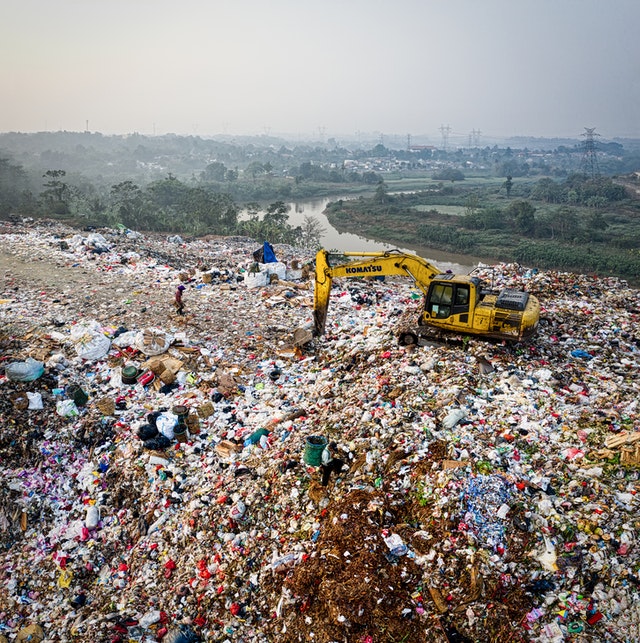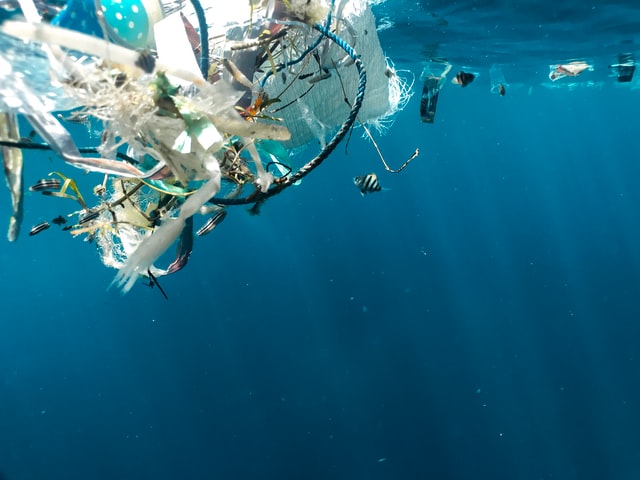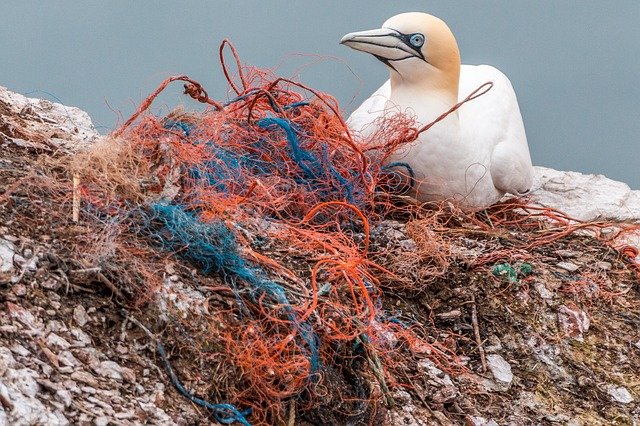The plastic crisis is a global issue that has been gaining attention lately. The UK, a major contributor to the plastic waste problem, produces more plastic waste per person than any other country except the USA. In this blog post, we’ll look at some of the facts and figures associated with plastic production in the UK and measures that can be taken to reduce plastic pollution.

Plastic has many positive uses because it is durable and versatile. However, these same qualities make plastic a hugely harmful pollutant. Inexpensive and disposable plastic products are a stark example of modern-day wastefulness; they pollute our world at an alarming rate. Much of the UK’s plastic waste ends up in the ocean, polluting them and creating a ‘plastic soup.’ Every minute, a truckload of plastic enters the sea, but with production increasing to 800,000 tonnes per year – that’s set to rise.
Unlike other types of trash, plastics don’t break down; it turns into smaller pieces called microplastics, it becomes more common in our environment than ever before: water systems, soil samples, and food products. Some manufacturers use microbeads for their products, such as cosmetics and toothpaste.
Pieces of plastic can be found in every corner of the world, including uninhabited islands and deep oceans. Researchers have measured a significant layer of plastic pollution in Antarctica, putting the wildlife at risk. Turtles, dolphins, and seabirds can become entangled or injured by large pieces of debris from floating plastic. For many animals, small plastic particles can be mistaken for food. Some plastics end up in the stomachs of microscopic zooplankton and consequently move up the food chain.
Plastic waste crisis in the UK
Managing plastic waste has been a significant concern for the UK government. A study conducted by Greenpeace said that approximately 40% of the UK’s plastic waste, which equates to 210,000 tonnes, gets exported to Turkey. The plastic waste is illegally discarded in fields and burned. Sample reports have shown that the waste originates from UK Supermarkets and retailers. Coronavirus antigen tests were discovered from these sites indicating that the waste is recent.
Waste dumping is not solely a UK problem; it extends to countries in the European Union. Biodiversity experts in the Mediterranean said that “Every day, nearly 240 truckloads of plastic waste travel into Turkey from across Europe, and it is overwhelming the country.” European Union member states sent 20 times more plastic waste to Turkey last year compared to 2016.
Senior plastic campaigners say that the root of the problem lies in the overproduction of plastics. Activists have pressured governments to implement targets such as reduce sign-use plastic by 50% in the year 2025. Three proposals have been discussed: extended producer responsibility, a plastic packaging tax, and mandatory electronic waste tracking. These are essential measures used to reduce waste output and foster recycling.
The UK’s Environment Department said: “The UK should handle more of its waste domestically, and to better achieve this, we have committed to banning the export of plastic waste out of the non-OECD while simultaneously clamping down on illegal exports.” Despite the positive talks surrounding recycling waste, wealthy nations have outsourced their recyclable waste overseas. It is an impermanent quick fix to achieving recycling targets due to being financially cheap and reducing domestic landfills.
Reducing plastic waste
The scale of the problem is becoming clear, but fortunately, the cure seems to be simple, produce and use less plastic. Citizens around the world have come together to combat plastic pollution, and they’re making progress. Environmental activists have successfully challenged large businesses such Coca Cola to use less plastic. In recent years, customers have firmly believed that doing something good for the world should be a level of responsibility for companies. There are numerous benefits to using less plastic, including cost savings, efficiency improvements, enhanced brand reputation, and employee engagement. Forward-thinking businesses want to be at the forefront of tackling ocean plastic because it is both morally right and good business sense.
Individual actions can make a world of difference in terms of plastic usage. These are a few easy ways you can start reducing your everyday waste.
- Disposable straws are incredibly problematic for marine life, so every time you must use a straw, be sure to get the ones made of steel or glass.
- Carry a reusable produce bag to avoid using plastic. Modern plastics take up to 1000 years before decomposing.
- Buy food like cereal, pasta, or rice in bulk bins and take your container. This results in more cost-effective shopping and less packaging waste.
- Consider using a razor with replaceable blades instead of a disposable razor.
- Bring your own reusable water bottle or mug to avoid unnecessarily purchasing bottled water.
The UK is continuing to be Europe’s largest plastic waste dump. Last year, Malaysia had seized and returned 150 shipping containers of illegally imported plastic waste to their country of origin – 42 of which belonged to the UK. In Turkey, where there are no environmental regulations in place, it’s not uncommon for this type of refuse material to be burned and dumped into landfills or recycled without consideration, given its potential toxicity. We need more stringent guidelines for handling our discarded plastics before exporting them overseas as a dumping ground solution. Have you thought about what happens when your plastic items end up in someone else’s backyard?








































